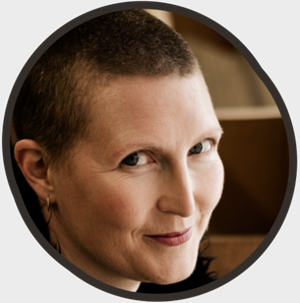The Internet of Things by Kate Camp
(Wellington: Victoria University Press, 2017) ISBN 9781776561063. RRP $25. Paperback. 62 pages.
I heard Kate Camp talk about her creative process during a lecture at Victoria University last year. Well, she talked about the ‘creative process’ as much as anyone can describe their creative process. But she showed us some of the notebooks where she stores receipts and tickets and random lines, so that on her writing day (imagine having the willpower and luxury of having an assigned writing day!), she can turn the pages until she settles on something to play with. It made me feel happy about my own notebook of random lines (which doesn’t have any taped-in bits of paper, because that would drive me crazy), and that this is indeed A Thing People Do.
A Thing That Kate Camp Does, and rather beautifully, is write down images that make you stop. Stop so that you can read. Re-read. Let them slip through the taste buds of your mouth, dancing around each taste bud to see what flavour they might contain. Stop so that your eyes can take in the shape of each letter, your pupils fill with the ink of each word, as those words shimmy along your optical nerves towards your brain.
Kate’s latest collection, The Internet of Things, contains many truly splendid and delectable images — so splendid and delectable that you’ll find yourself waking up whoever may be sleeping next to you, in order to let them taste the images, too. I’d love to write this whole review just as line after line of her images. Instead, let me offer you these as some amuse-bouche:
It was always going to be
that some parts of your life would swell
while others would only be shown their natural size.
(“The Mercator projection”)
I don’t mean that unlovingly.
Just that I look surprisingly human
with my long face and my memories.
(“Civil twilight”)
when you travel to Mars
it’s so boring
you have to take heaps of Tabasco.
(“Life on Mars”)
The past is something that you only notice is heavy
when you’re moving.
(“The biology of loneliness”)
In a few poems, every line is part of a larger, beautiful image. “Lightning” hits so many moments of tastiness that it leaves you hurt when you realise the sourness of health issues. The first two sections of “Advice for the person” have so much nutritional goodness in the words that your blood flows better (sadly, the third section was completely lost on me, and clotted my blood).
For me, the tastiest morsel is “Flight”. I nodded. I smiled. I laughed to myself. I tried to wake the body next to me so that I could read it aloud, but the body refused to wake and listen. It is the only poem in the book that I wanted to read to someone else. You should read it.
Sadly, “Flight” is indeed the only poem in the collection that I want to read to someone else. For all the truly beautiful images crafted in this book, Kate’s poems left me, well, blank. It felt as if there’s a code that I don’t know, and that maybe if someone told me the key to unravelling it, I might understand the poems. But instead the poems as a whole sit there, unable to be fully tasted, because I don’t know how to unlock the door to the pastry cabinet.
There are some people who truly deeply love, even thrive on poems that are mysteries that require you to go off, Indiana-Jones style, in search of the key to understanding them. For them, a poem that doesn’t require unpicking isn’t really a poem (I know, I’ve had this conversation with such people). I am not one of those people. Even repeatedly flicking to the back of the book to read the notes didn’t leave me any the wiser. I wanted to really like this book. Sadly, I didn’t. You might like it, or even truly deeply love it and the Indiana Jones adventures it sends you on. For me, I don’t want crumbs of goodness that leave me wondering what I’m missing out on. I want the whole cake. This collection gave me just one thin slice, even if that slice did taste really good.
First published in a fine line (New Zealand Poetry Society magazine) (2018)




